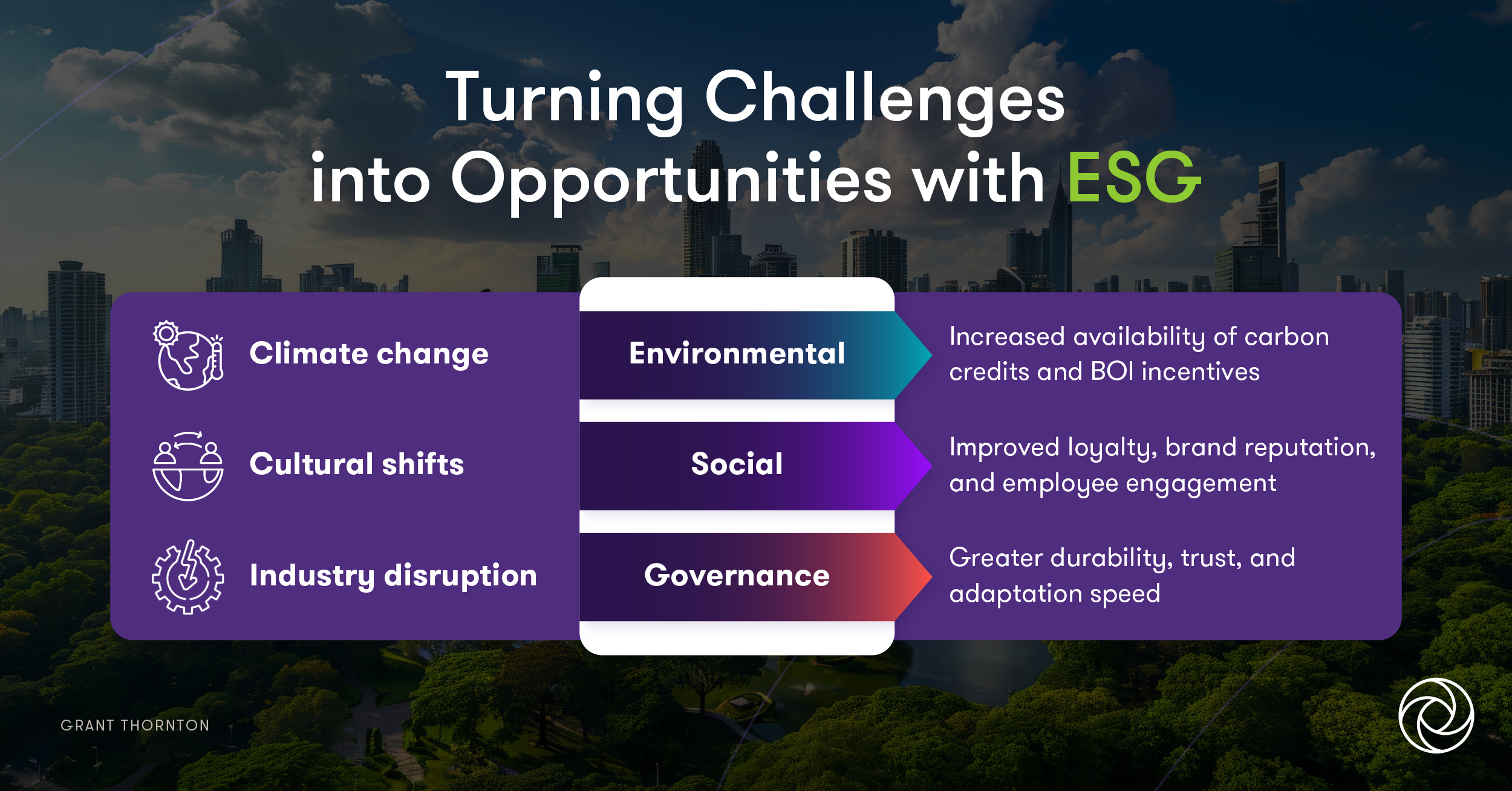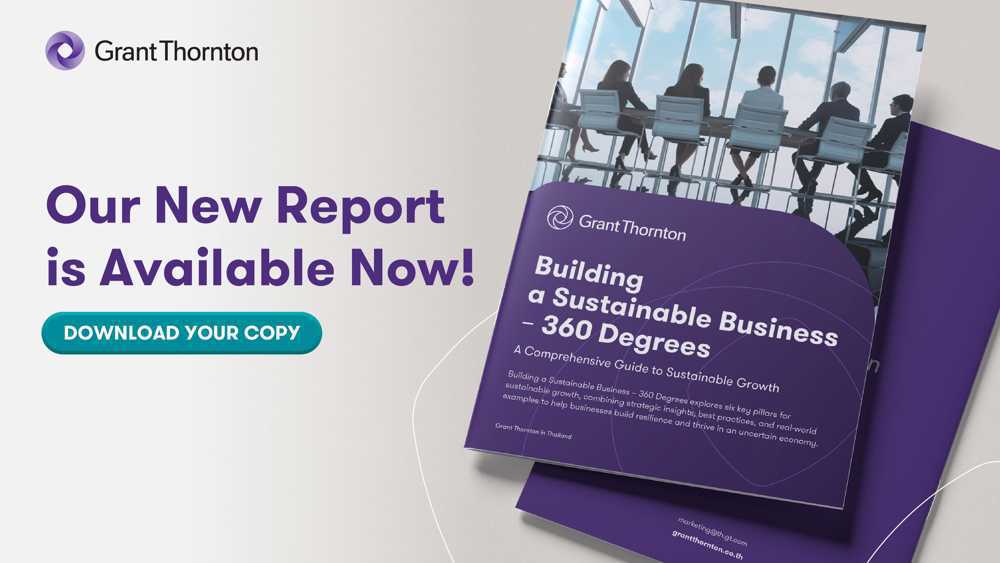Sustainable environmental, social, and governance principles have evolved from a box-ticking exercise into a strategic lever that bolsters business resilience. The ideals they represent can future-proof your company against disruptions involving climate change, social unrest, or leadership scandals, while also unlocking new growth opportunities.
Resilient companies learn to see external shocks not just as threats but also as opportunities. As new business conditions force entire sectors of the economy to adapt, the best-run companies use agile methods to outpace their rivals and absorb their market share, ultimately turning risks into competitive advantages. The more healthy and well-run an organisation is internally, the easier it will be for its operations teams to pivot toward new sets of goals.

Fortune favours the prepared business
Case Study
Thai Union, Thailand’s seafood giant, shows the practical advantages of ESG in action. Facing international criticism over their fishing practices, Thai Union did more than just comply with new norms. The company’s “SeaChange” strategy, launched in 2016 and strengthened in the subsequent years, tackled overfishing head-on by tracing its tuna to sustainable sources via the blockchain. Thai Union also addressed labour concerns by auditing its supply networks and making changes where warranted.
These initiatives turned real reputational blemishes into positive brand features. As a result, Thai Union began to perform well in premium markets such as Europe (where ESG scores are highly correlated with commercial success), leading to steady revenue growth for the seafood exporter.
A similar approach was taken by CP ALL, the Thai retail giant running over 13,000 7-Eleven stores. Facing pressure on issues involving waste and community impact, the company turned to ESG principles for solutions. After careful planning, CP ALL rolled out a ‘Green Store’ model for its commercial locations - featuring solar panels on rooftops, biodegradable packaging, and rural job programmes - an initiative which cut energy use while also lifting local employment.
This proactive solution did more than just dodge incoming regulatory scrutiny. It also won over eco-conscious shoppers, helping the retailer to grow its market share significantly during the period.
Making customers, employees, and the BOI happy
Although sensible ESG commitments more than pay for themselves in the long run, Thailand and other countries across the region routinely use tax policies and other incentives to make such business paths even more lucrative. Still, qualifying for these perks often requires sophisticated legal and technical knowhow, along with some careful planning in advance.
Turning ESG from a buzzword into action is less about sticking a green label on the brand, and more about rethinking how the business itself runs, weaving its principles into operations, culture, and strategy alike. Even if it were possible to cut corners and still pass a Board of Investment incentives review, your customers and your personnel would quickly identify the company’s ESG programme as little more than window dressing - instantly negating much of the effort that went into it.
"Turning ESG from a buzzword into action is less about sticking a green label on the brand, and more about rethinking how the business itself runs.”
As with any initiative, companies should start by determining the area of biggest or most urgent need, and then assessing the likely impacts of various remedies. Once a set of actions has been decided upon, the relevant operational processes should be redesigned to meet clear and measurable goals, with staff trained and progress tracked along the way. Over time, the resulting efficiency improvements will make your business far more agile, and ready to meet the needs of tomorrow’s economy.








